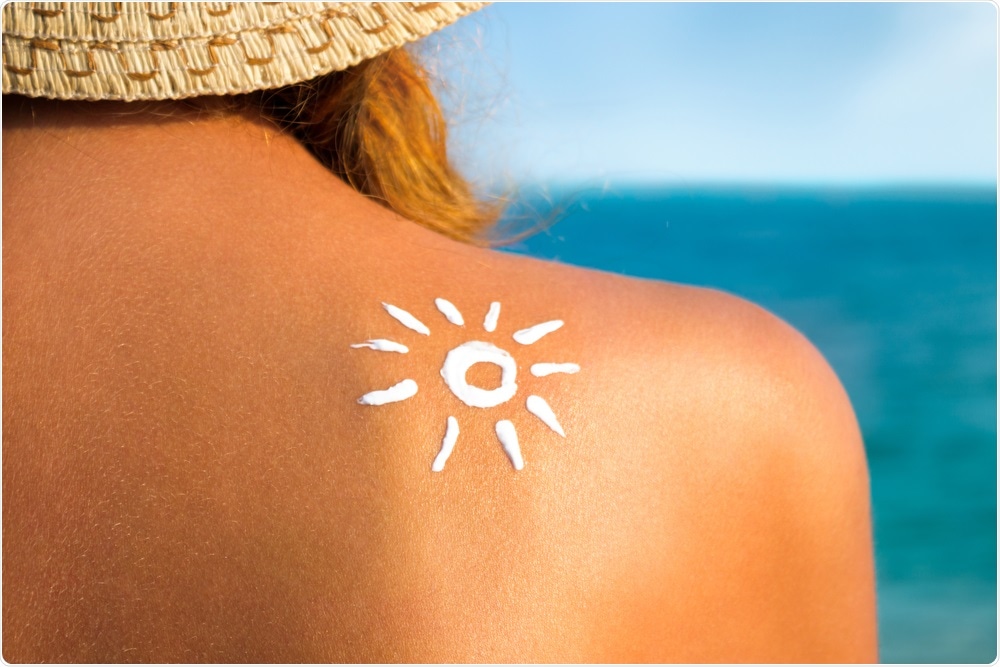According to a new report by Cancer Research UK, the incidence of skin cancer has “soared” over the last ten years, with men and younger adults experiencing the greatest leap in cases of melanoma.
The charity says that cheap flights abroad giving people more opportunities to seek out the sun all year round are partly to blame for the increase in melanoma diagnoses, which is the fifth most common cancer in the UK.
However, experts say that the rise in diagnoses is also due to greater awareness of skin cancer, meaning more people are going to their doctor for checks and getting diagnosed.
 Cherries | Shutterstock
Cherries | Shutterstock
In 2016, melanoma accounted for 5 percent of all new cancer cases - the equivalent of 44 new melanoma cases every day!
Figures released by Cancer Research UK show that skin cancer rates have increased by 45 percent over the last decade, with rates for women rising 35 percent and 55 percent for men.
Since the early 1990s, rates in women have increased twofold (100 percent) and rates in men have tripled at 181 percent. Along with different incidence rates, men and women also get melanoma in different places.
Men have been found to be more likely to develop skin cancers on their chests and backs, and women are more likely to develop skin cancer on their legs, which could be due to the different clothes men and women wear in the sun.
Working outdoors can also increase a man’s chances of developing skin cancer:
While some might think that a tan is a sign of good health, there is no such thing as a healthy tan, it’s actually your body trying to protect itself from harmful rays. These statistics highlight the importance of our Own Your Tone campaign, which encourages people to embrace their natural skin tone and adopt sun-safe behaviors.”
Michelle Mitchell, CEO of Cancer Research UK
Embrace your natural look and be aware of the sun
Overall, melanoma skin cancer cases have increased 144 percent, from 18 cases to 26 cases per 100,000 people.
Melanoma is more common in people over the age of 65, but increases in incidence rates among 25 to 49-year-olds have reached 70 percent since the 1990s.
Preventing skin cancer is simple. Health professionals say almost nine out of 10 skin cancer cases could be avoided with the use of high factor sun cream.
Being mindful of the UV index (a tool that shows how strong the sun’s UV rays are) can also help to protect the skin from sunburn, which can triple a person’s risk of developing melanoma skin cancer.
Being aware of what kind of skin types are more likely to suffer from sunburn and consequent melanoma risk. Cancer Research UK advises that extra care should be taken if a person has one of more of the following:
- Skin that burns easily
- Light or fair skin, hair, or eyes
- A lot of moles or freckles
- A history of sunburn
- A personal of family history of skin cancer.
The health information manager for Cancer Research UK Karis Betts urged the public to be mindful of sun safety not only when they are abroad, but at home in the UK as well.
“Sun safety is not just for when you’re going abroad, the sun can be strong enough to burn in the UK from the start of April to the end of September. It’s important that people are protecting themselves properly both at home and further afield when the sun is strong.
“We want to encourage people to embrace their natural look and protect their skin from UV damage by seeking shade, covering up and regularly applying sunscreen with at least SPF 15 and four or five stars.”
Stephen Powis, the national medical director for the UK health service gave advice on reducing the risk of developing melanoma:
Although cancer survival is at a record high, more people are getting diagnosed with melanoma and nearly half a million people were urgently referred for skin cancer checks in the last year, so it’s vital that people take every precaution possible to protect their skin, particularly in the summer months, by wearing sunscreen and spending time in the shade.”
Stephen Powis, NHS Director
More figures released by Cancer Research UK state that 1 in 10 melanoma skin cancer cases are diagnosed at a late stage, reinforcing the importance of being careful about sun safety and seeking a diagnosis early.
“Getting cancer diagnosed as soon as possible is vital to people’s chances of surviving,” Powis said, “which is why the NHS long term plan sets out ways to catch it earlier including through genomic testing and the roll-out of rapid diagnostic services.”